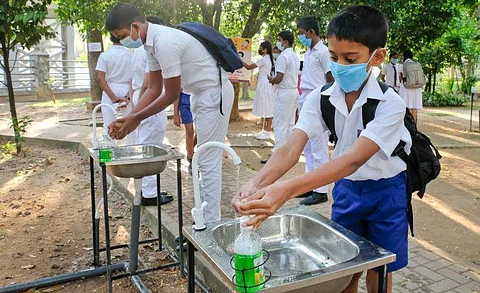Primary schools reopen in Sri Lanka even as teachers' strike demanding an increment in salary continues
Primary schools in Sri Lanka reopened on October 21 after a COVID-induced gap of over six months, even as the government was negotiating with protesting teachers over their demand for an increment in salary. Schools reopened to dull scenes as the usual cacophony of school activity was amiss. Most faculty and school principals stayed away from classes as the teachers' unions have voiced their dissatisfaction over wages.
Not just the teachers but even most of the students were absent from classes on the first day of reopening. At least two schools in the capital Colombo reported just one student attending class. The teachers' unions have vowed to continue their industrial action which was launched in July this year. "We will return to work on October 25 and carry on our struggle to win our rights," said Mahinda Jayasinghe, a teaching federation representative.
Earlier in the month, the government promised to hike the wages. The teachers' unions decried the government offer, which according to them, would defer the increment disbursement till 2023. The government had also announced that physical primary school education would begin from October 21 with a maximum of 200 students. Schools for all grades are to be opened by November. The protesting teachers were also critical of the reopening plan. "Only around 3,000 schools have fewer than 200 students. And for that, they need around 10,000 teachers," a striking unionist said.
"We will go for our union action. We have planned a campaign, including strikes, protests and parent-meetings while continuing the education of children," he said.
On Thursday, October 21, teachers loyal to the ruling government returned to schools, though the overall attendance was poor, observers said. All in-class teaching was suspended in Sri Lanka this year in April, in view of the COVID-19 pandemic. Classes were shifted to the online mode. The teachers' unions started their protest citing the lack of facilities to conduct virtual classes.



